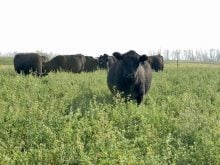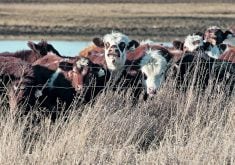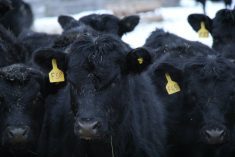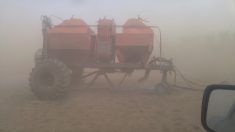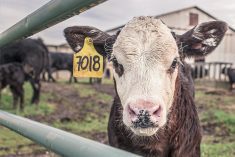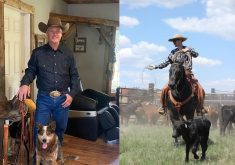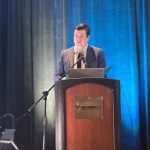*[UPDATED: Dec. 20, 2018] He’s disappointed to have lost the vote and wishes more cattle producers had cast a ballot, but the chair of Alberta Beef Producers says it’s now time to “move forward.”
There were 1,874 votes cast in a plebiscite to make the $2 provincial beef checkoff non-refundable — with 51.3 per cent opposed. ABP officials estimate about 7,000 producers were eligible to vote.

“I wasn’t entirely surprised because I knew it would be extremely close and I knew it could go either way,” said ABP chair Charlie Christie. “The disappointment comes with the low number of votes that we got on a really important issue.
“I’m not saying that the outcome would have been any different. A statistically relevant number of people voted and that’s the answer, and that’s the way we move forward.”
The cattle organization’s executive director echoed those comments, noting the group has been asking the province for a plebiscite since 2009 when the former Conservative government gave producers and feeders the right to request a refund.
“We were hoping that the checkoff would be non-refundable because we thought that the creation of the beef industry development fund would be really good for our industry,” said Rich Smith.
“In 2009, we asked for producers to have to make that decision. Now they were able to have the opportunity and now we need to move forward based on the results.”
A spokesman for a group called Concerned Producers for a Great ABP said advocates of a refundable checkoff believe it’s a better system.

“The argument was not over the merits of the work that’s been done (by ABP),” said Danny Hozack, who ranches near Streamstown and was ABP chair in 1986.
“It was over our philosophical belief that the funding should be voluntary and so that’s why we voted no. We think it should be voluntary. We just think it’s one way of holding an organization accountable.”
Hozack said opponents also felt a proposed $1.4-million beef industry development fund, which would have been created if the checkoff became mandatory, wasn’t needed.
“There’s already the $2.50 (national checkoff) that is compulsory,” he said. “You can do the research you need to do through that anyway. They didn’t really need the beef industry development fund.”
Read Also
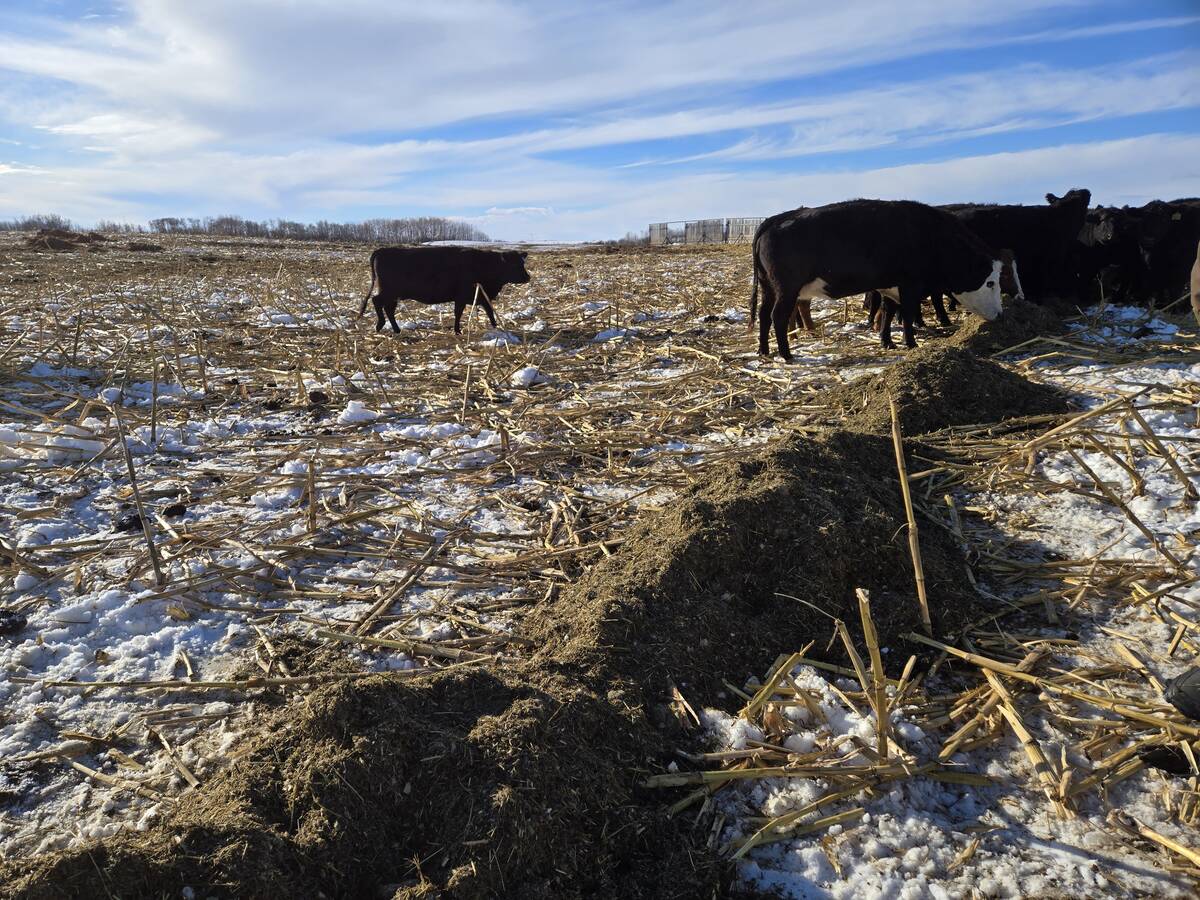
Winter grazing tour highlights cost-saving mix of cover crops and silage
Discover one beef producer’s strategies to slash winter feed costs — and how to make sure it meets a cattle’s nutritional needs.
Christie was aware that many producers believe a refundable checkoff “creates accountability.”
“That’s not exactly my view,” said the Trochu-area rancher, feedlot operator, and grain farmer. “It kind of puts us up for sale — if you do this, we’ll leave our checkoff in.”
But there’s no hard feelings and the organization will move on, he added.
“We just have to make sure we take the high road and make the proper decisions,” he said.
Hozack, like Christie and Smith, was also disappointed by the low turnout.
ABP officials had hoped that the organization’s fall meetings would see double the usual attendance, but it was only up by 10 to 15 per cent and the low vote numbers came despite the voting period being extended by two weeks to Nov. 27.
“Our fall meetings came during the first period of good weather that had happened since the Labour Day weekend,” said Smith. “When we started to hold our meetings at the end of October with the plebiscite voting, that’s when the weather got good. That’s when every combine in the province was in the field.”
The next step is to meet with Alberta Cattle Feeders’ Association, which also backed a non-refundable checkoff and would have received a small portion of it.
The two organizations now have closer relations than they’ve had in many years, and Christie said he wants to build on that.
“We’ll get together with the cattle feeders in the middle of January,” he said. “I think we need to continue working together with the industry. That was probably as important as the money would have been. We need to try and salvage that part and it may salvage some funding as well.”
Still, he expects ABP will continue to rebate about $2.5 million annually, which has been the situation since 2010.
“It doesn’t represent a significant change in our revenue,” said Smith. “It just means that we won’t be able to make the investments we were hoping to make with that $2.5 million.”
*A previous version of this article stated in the headline that the checkoff was ‘refundable’. We apologize for any confusion this may have caused.




